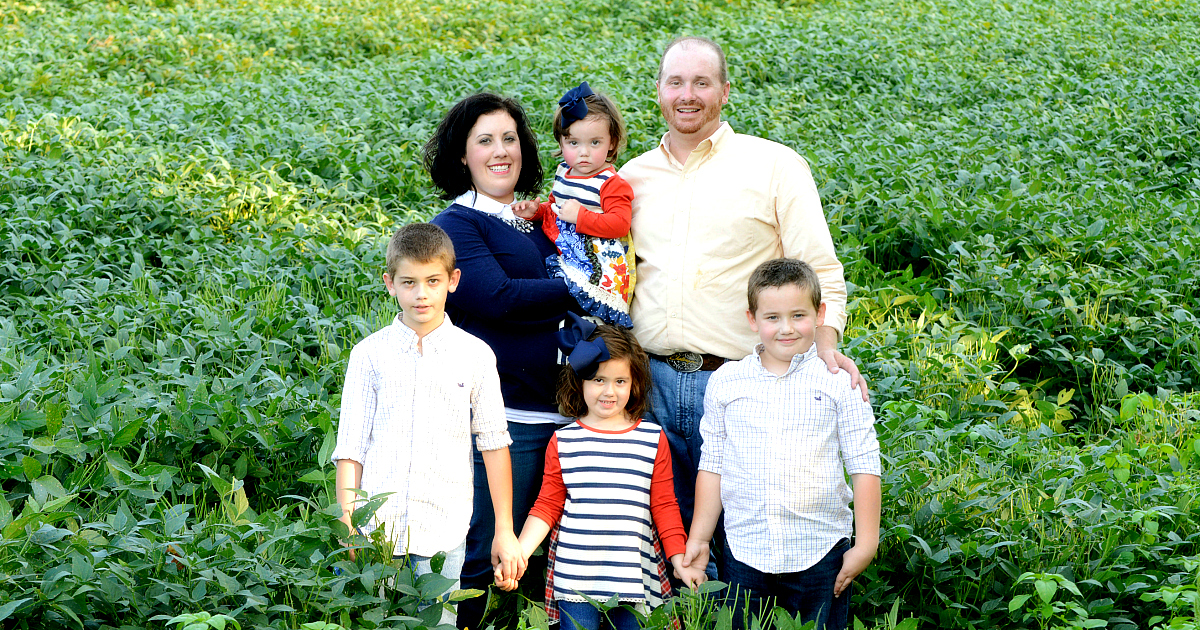KFB Candid Conversation: Chris Pierce, Pulaski County Grain Producer
Posted on Jul 30, 2018
KFB Candid Conversation presents a discussion about the topical issues facing the agricultural industry and rural communities in a question and answer format. In this column, Chris Pierce, a grain producer from Pulaski County, discusses ways to remain sustainable on the farm and how international trade affects his operation.
Would you share with our readers a little about your farming operation?
We farm in the counties north of Lake Cumberland; Pulaski, Casey, Russell, and Wayne Counties. Our Farming operation was founded in 2007 with 493 acres. We now grow crops on 5981 acres. We are a never-till operation that used cover crops in a soils health system on 98 percent of our acres in the fall of 2017.

What are some of the keys to being successful on the farm in today’s economic times?
Crop insurance is a key risk management tool and maintaining a good record keeping system is a very important part of decision making. We have no control over weather and markets but we do have control over spending. Budget building and sensitivity analysis is a key to determining return on investment and it’s important to know your fixed cost structure.
How important is the trade dollar to farm families?
We are a net exporter of agricultural commodities in the U.S. and farmers are very dependent on the trade dollar. In meeting the needs of our farm families, and from a comfort standpoint, we need the revenue generated by our exported goods and that holds true for farms of all sizes. We produce more than we consume by sizable amounts. However, that is not true in other parts of the world. While the trade dollar is important to our farm families and rural communities, I think it’s just as important to get what we produce on the farm to those families in other countries who depend on the American farmer to be successful.
At a time when farmers are concerned about issues such as tariffs and low commodity prices, what kind of advice would you offer to those seeking to stay on the farm?
Staying on the farm during these times of low commodity prices is not easy. The idea of entering into an enterprise with a low probability of profit is defeating mentally and emotionally. As farmers, we are marathon runners not sprinters. We have to look at the long-term and farming is a local business. You cannot get out and back in without losing confidence from the community. Look to manage costs. Fixed cost management is critical. Family living expenses can be reviewed. Be honest with yourself when building enterprise and whole budgets and remember, the worst person you can lie to is yourself.
In your opinion, how important are the local family farms to the overall economy in this state and across the country?
Because of what and how well we produce at the local level, it benefits all consumers. We are efficient and a large group of homogenous producers and I think our farm products help to keep food costs low and help validate disposable income for all families across the country. Having such low food costs allows us to have money for other things. But, I believe rural economies live and die by the state of family farms. As disposable incomes drop at the farm level, rural businesses feel the pain first and rural infrastructure such as utilities and municipal services are at risk under the threat of farm income loss.
How important is it to foster new trade agreements?
We need leadership that will foster new trade agreements. These agreements need to be fair, offering opportunities to working class people in America. They need to be balanced not to exact price inflation on consumers. Trade agreements should not limit the access of our agricultural products to the world consumer. We consume four percent of the world’s food supply here in the U.S. but American farmers produce over 20 percent of the world food supply. Agriculture is the most trade dependent industry in America. We want to be good stewards and we want to see people benefit from our abundance. As farmers, we just ask for a fair return for our families and the security to keep up our leg in the marathon.
Comments